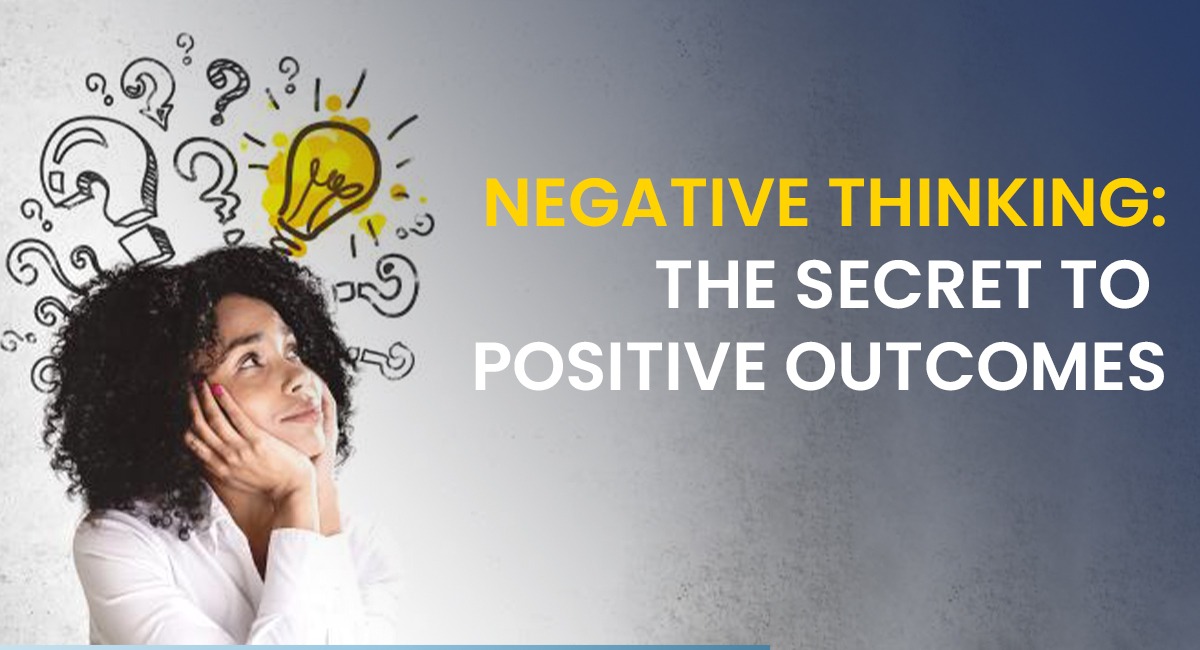Negative Thinking: The Secret to Positive Outcomes
- Posted January 10, 2025
- by Gopal Ramjiwal
Negative Thinking: The Secret to Positive Outcomes
I propose a different path: The Power of Negative Thinking. This approach, while unconventional, is rooted in practicality and offers profound benefits in our modern, complex lives.
Three Types of Thoughts
Human thought processes can be broadly categorized into three types:
-
Positive Thinking:
This is the approach that most motivational philosophies advocate. Positive thinking involves visualizing success and focusing on optimism. While it can be uplifting, it often leads to unrealistic expectations. When reality falls short of these high hopes, the result is frustration and a sense of inadequacy. -
Neutral Thinking:
Neutral thinking aligns with the teachings of Bhagwan Krishna in the Bhagwad Gita:
“Karmanye Vadhikaraste Ma Phaleshu Kadachana.”
(Do your duty without attachment to the results.)
This approach encourages action without being consumed by the desire for specific outcomes. It is a balanced and spiritual way of living but may lack the emotional push needed to endure life's intense challenges. -
Negative Thinking:
This is the approach I advocate. Negative thinking involves expecting the worst-case scenario and mentally preparing for it. In modern life, where we face daily struggles in society, at work, within our families, and even with ourselves, this mindset proves most effective. By preparing for negative outcomes, we cultivate resilience, reduce the shock of setbacks, and find immense joy in even the smallest positive outcomes.
The Joy of Small Wins
In a world filled with challenges, expecting the worst can be surprisingly liberating. When you prepare for failure and life surprises you with even a modest success, the resulting joy is unparalleled. For example:
- When a difficult day at work ends with a kind word from a colleague, it feels like a victory.
- When a strained family relationship improves even slightly, it brings immense relief.
- When financial struggles ease, even temporarily, it can feel like a blessing.
This approach transforms our outlook. Instead of being crushed by unmet expectations, we savor the sweetness of unexpected positivity.
The Role of Rahu and Ketu in Vedic Astrology
Vedic astrology provides a fascinating perspective on this philosophy. The planets Rahu and Ketu are known for their unpredictable nature. They often do the opposite of what we expect.
- When you think positively and attach yourself to outcomes, Rahu and Ketu may disrupt your plans.
- However, when you embrace negative thinking and expect the worst, these cosmic forces may surprise you with positive results.
This paradox aligns perfectly with the philosophy of The Power of Negative Thinking.
Why Negative Thinking Works in Modern Times
- Practical Preparation: By anticipating challenges, we are better equipped to face them.
- Emotional Resilience: Mentally preparing for failure reduces the sting of disappointment.
- Gratitude for Positivity: Small successes feel more significant when contrasted against low expectations.
- Freedom from Over-Attachment: By focusing on potential negatives, we free ourselves from being overly attached to ideal outcomes.
Conclusion
The Power of Negative Thinking is not about pessimism or giving up. It is about preparing for the realities of life, expecting the worst, and cherishing the unexpected joys. This mindset fosters resilience, gratitude, and a balanced perspective that is invaluable in navigating the complexities of modern life.
Instead of chasing unattainable dreams fueled by blind positivity, embrace the practical wisdom of negative thinking. As the teachings of Vedic astrology remind us, when we expect the worst, the universe often surprises us with the best.
So, think negative and prepare for the positive!




To purchase these products pls visit our home page

